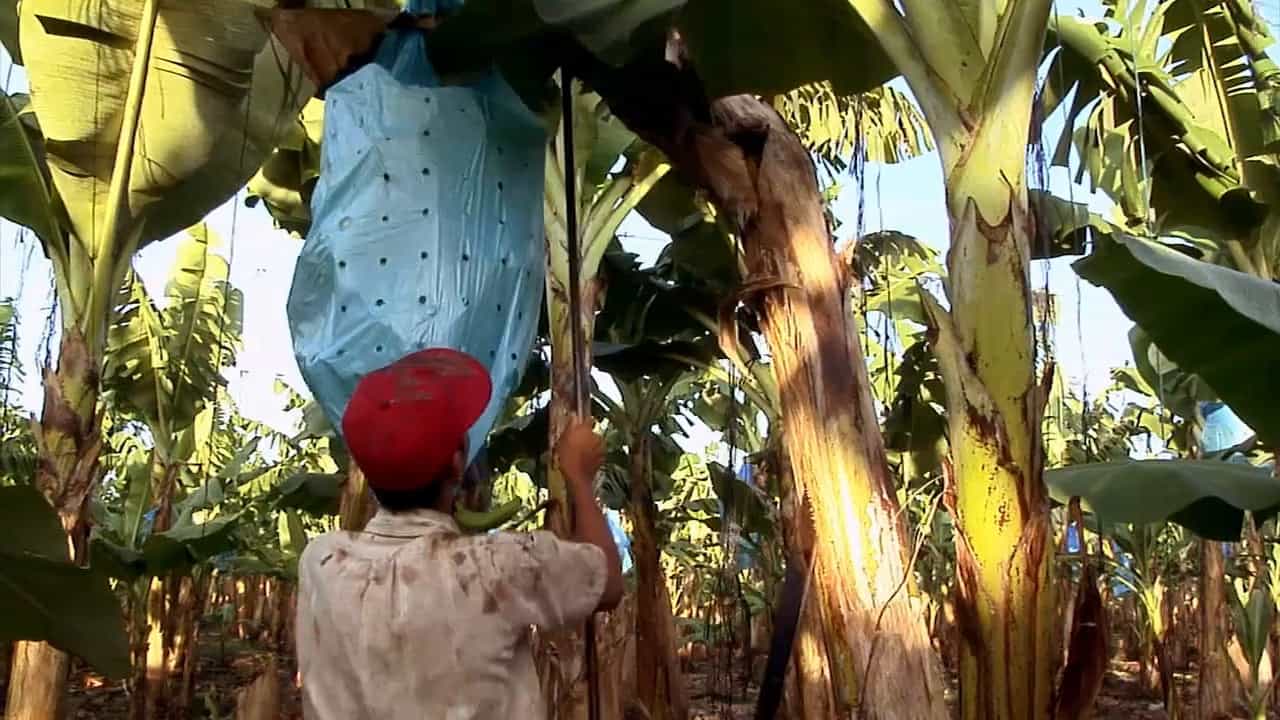Banana Land: Blood, Bullets and Poison
Banana Land: Blood, Bullets and Poison uncovers the dark history and ongoing exploitation in the banana industry. It traces the origins of banana production in Latin America, revealing how multinational corporations have shaped the political and economic landscape of these regions for over a century.
The documentary begins by exploring the formation of the United Fruit Company in 1899, which established a monopoly on banana production and distribution. It details how this company, now known as Chiquita Brands International, manipulated governments and exploited workers to maintain its dominance in the market. One of the most shocking events highlighted is the 1928 Santa Marta Massacre in Colombia, where over 1,000 striking banana workers were killed by the Colombian military at the behest of the United Fruit Company.
The film then moves on to discuss the environmental and health impacts of industrial banana production. It reveals how chemicals left over from World War II were repurposed for use in agriculture, turning Latin America into a testing ground for industrial farming methods. It exposes the devastating effects of pesticides like DBCP, which caused sterility in male workers and birth defects in children born in communities near banana plantations.
The documentary also sheds light on more recent controversies, such as Chiquita’s admitted financial support of paramilitary groups in Colombia. These groups, classified as terrorist organizations by the U.S. government, were used to violently suppress opposition to the company’s operations.
Throughout the film, experts and affected individuals provide testimony on the social, environmental, and economic consequences of the banana industry’s practices. The documentary draws connections between the low prices consumers pay for bananas in developed countries and the human rights abuses and environmental degradation occurring in banana-producing regions.









